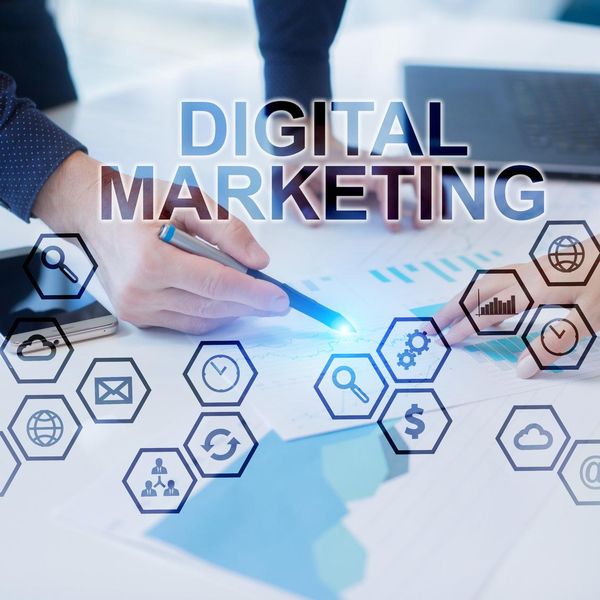
Porridge and Personal Branding: Do You Pass the Goldilocks Test?
This is a tale of three business owners who came to me with stories that proved to be just like the Three Bears' porridge: too hot, too cold, and just right. And it explains why most entrepreneurs and CEOs need a personal branding coach -- or Goldilocks -- to help them find happy endings to their tales.
Too Hot
Esmeralda is a holistic healer in southern California. She helps people and pets rid themselves of past life experiences by channeling their ancestors and spiritually cleansing their homes.
She said her Los Angeles-area clients loved her but she wanted to reach a worldwide clientele -- angry people in Singapore, forlorn cats in Topeka, and depressed dogs in Amsterdam, for example -- and needed a more mainstream image. Her goal was to provide consultations via Skype for $150 to $250 an hour.
Esmeralda (not her real name) boasted pretty impressive New Age credentials and dozens upon dozens of testimonials. A lot of people said Esmeralda had made them happier, healthier, wealthier, and wiser and the "after" animals on her website looked pretty giddy, too.
Maybe I've just lived in California for too long, but I was confident I could brand Esmeralda as a natural healer and figured that if Whole Foods could sell wheat grass in Detroit, Esmeralda could cyber-treat puppies in Des Moines.
Until Esmeralda started sharing "mainstream" stories and photos of herself. Her idea of healing was straight out a Marvin Gaye song and her notion of professional attire was a bikini bottom instead of a G-string.
And she could not be convinced that, if she wanted to change her personal brand, she needed to put on some clothes. She claimed to be following the spiritual practices of the Dalai Lama, but she certainly wasn't taking wardrobe advice from him.
Esmeralda's story may sound too extreme to be applicable to the average business person. But far too many are myopic -- or downright blind -- to the effect their behavior or appearance has on others.
Seek objective advice from someone you trust. If the people in your inner circle aren't like the people you want to impress (don't expect your corner bar drinking buddies to tell you how to prepare for a Fortune 500 board meeting), consult a professional advisor.
Too Cold
Jeff Kahn, a kinetic sculptor, is not as cold as stone. He's actually a warm, friendly, and funny guy. More important, he has a wealth of stories to tell. But he is almost pathologically self-effacing. His resume, for example, mentions that his work has been exhibited at an air and space museum. It neglects to mention that the museum is the Smithsonian.
Kahn also likes to talk about the times he's fallen off horses as if he's naturally clumsy. He's less eager to talk about the fact that he was a champion equestrian. And downright reluctant to discuss the newspaper articles, TV appearances, and books that feature him. Or the fact that he invented the surgical instruments that a doctor used on him when he needed hip surgery.
It's common for clients to overstate their credentials, to call themselves "bestselling authors" because their e-book sold a dozen copies on Amazon or "experts" at any position they've held for more than six months. Egos often get in the way of personal branding. Phonies don't hold up to public scrutiny for very long.
But lack of ego is also a hindrance when it comes to building your brand. You don't need to boast, but at least take credit for your accomplishments. And, if you have a story worth telling, share it.
Just Right
Bryan Randall's company is wrapped in a story and the founder of Groopid.com, a car auction site, tells it well.
Six years ago, he lost a federal contract job. A few months later, his car was repossessed and he was forced to go job hunting and grocery shopping by bus and bicycle.
It was a dark period in the life of a man who confidently pitched a TV show to a Detroit producer when he was still in elementary school and who expected his career to follow a steadily upward path. It was one thing to lose his job, but to lose his car was devastating.
He never forgot how defeated, how emasculated he felt to be a husband and father who couldn't provide even basic transportation for his family.
So, when his fortunes improved and he found himself flying across the country -- on his employer's dime -- Randall took out a pad of paper and started jotting down ideas aimed at answering a single question:
How could he help people like the man he used to be -- someone with no money and no credit -- buy a car?
"I was staring out of the airplane window reflecting on my life and how things had turned around for my wife, kids, and me. I felt blessed and wanted to come up with a way to help people that are in the situation that I was in. Scarred credit … little to no money … but in need of personal transportation."
Groopid was the answer. Set to launch this summer, Groopid is the first ever group car auction portal. It works on the principle of crowdfunding. People pay a small fee to purchase auction tickets and the auction takes place once the reserve is met. For as little as a $2 buy-in, a person has a chance to bid on a brand new car, which Randall hopes will have a final purchase price of $200.
People have been selling cars since Karl Benz invented the modern automobile in 1866, and auctions date back to the Roman Empire. But Randall has found what both entrepreneurs and storytellers need -- a new twist on an old concept.
Don't try to reinvent yourself. But find your story -- the one that best defines you and your purpose -- and tell it well. Your audience, like Goldilocks, is impatient and may not stick around for the second spoonful of porridge. Give them reason to do more than sample your brand.



